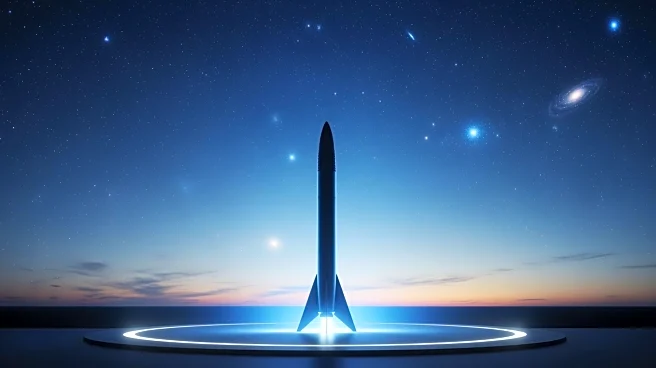What's Happening?
Blue Origin has achieved a significant milestone by successfully landing its rocket's first stage on a floating platform after launching from Cape Canaveral. The mission included carrying two satellites
destined for Mars, marking a step forward in the company's space exploration efforts. This successful landing demonstrates Blue Origin's growing capabilities in reusable rocket technology, which is crucial for reducing the costs associated with space travel and exploration.
Why It's Important?
The successful landing of Blue Origin's rocket is a pivotal moment in the commercial space industry, showcasing advancements in reusable rocket technology. This development is likely to drive competition and innovation within the sector, potentially lowering costs and increasing access to space. The mission's success also contributes to the broader goals of space exploration, including interplanetary missions and satellite deployment, which can enhance scientific research and global communications.
What's Next?
Following this successful mission, Blue Origin is expected to continue refining its technology and planning future launches. The company may focus on expanding its capabilities for interplanetary missions and increasing the frequency of its launches. Collaboration with other space agencies and private companies could be on the horizon, aiming to further the goals of space exploration and technology development.
Beyond the Headlines
The achievement by Blue Origin highlights the growing role of private companies in space exploration, which traditionally has been dominated by government agencies. This shift raises questions about the future of space policy, international collaboration, and the ethical implications of commercializing space. As private entities become more involved, discussions around regulation, sustainability, and equitable access to space resources are likely to intensify.









